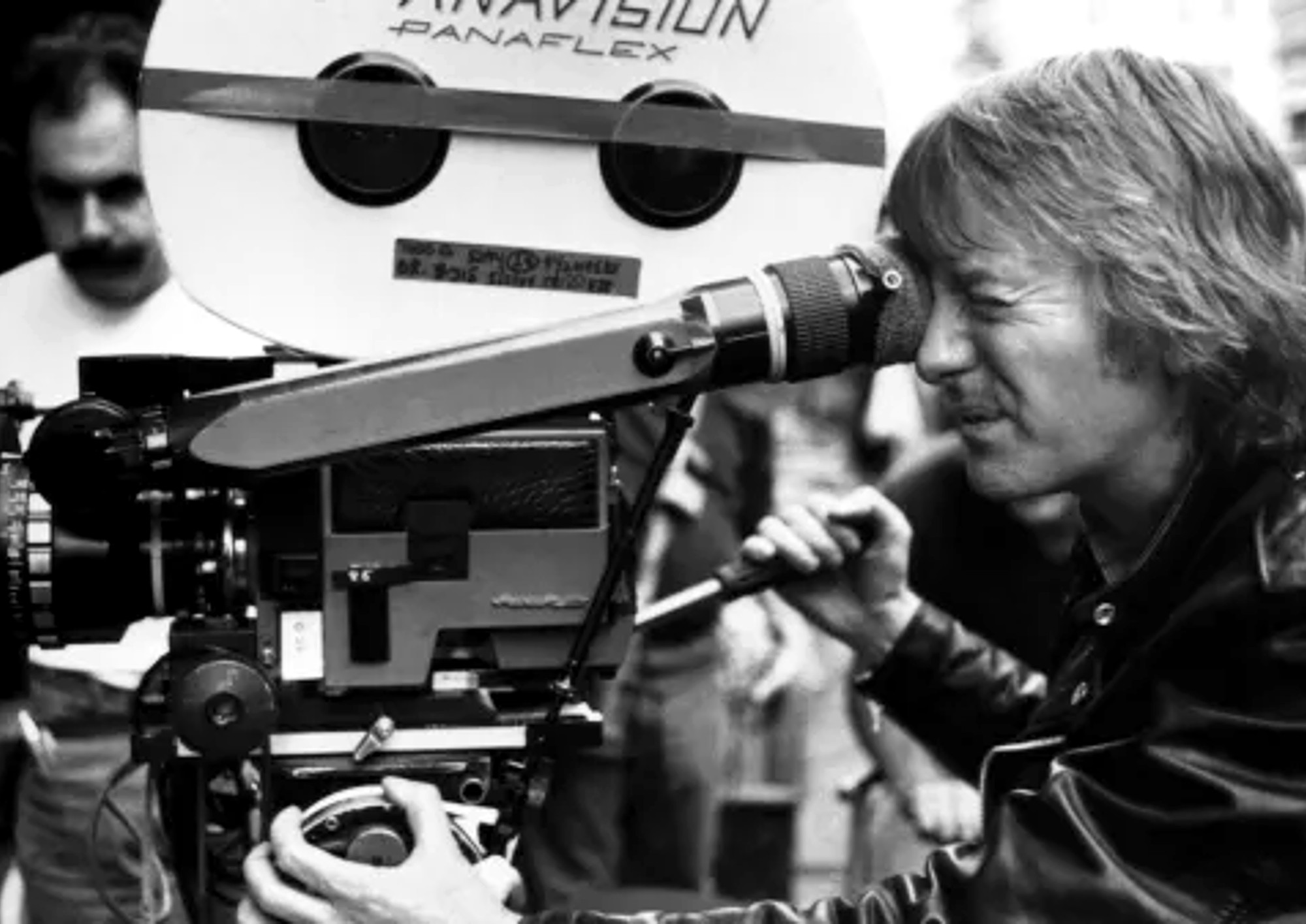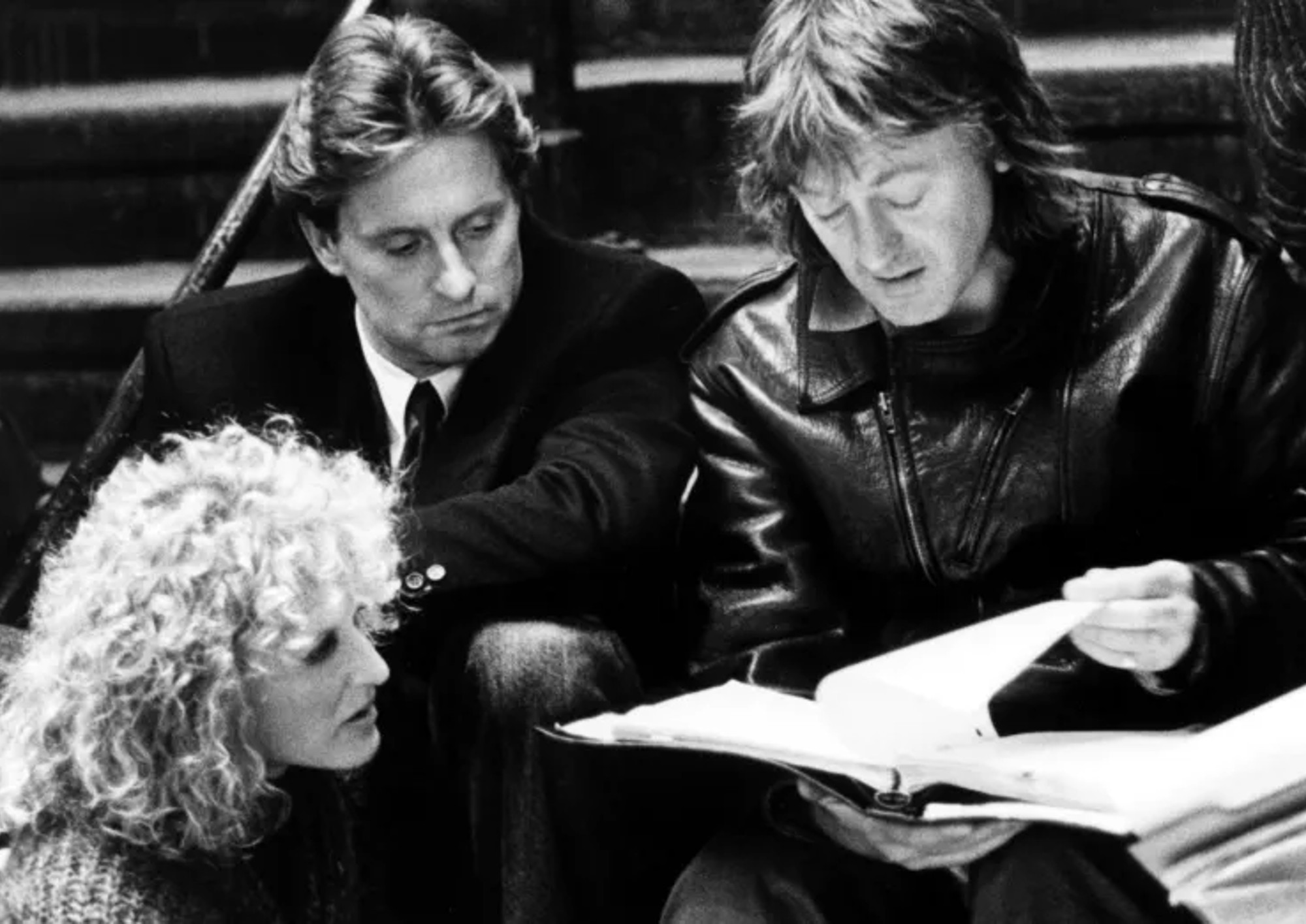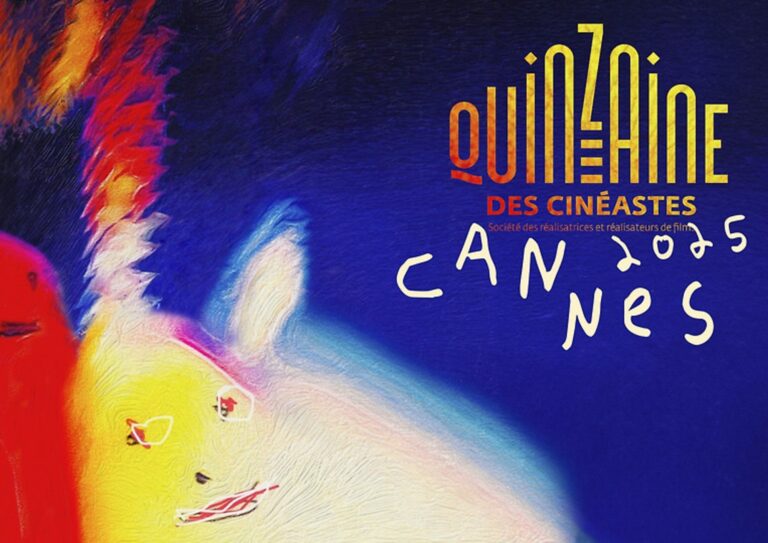Roxy Cinema Does Lynes
Roxy Cinema takes a deep dive into the cinematic sphere of Adrian Lyne with a six film retrospective.

When the world of cinema craved intensity, desire, and psychological complexity wrapped in simmering tension, Adrian Lyne emerged as the architect of the erotic thriller genre. Known for his steamy, high-stakes films, Lyne’s work continues to influence filmmakers and captivate audiences decades after his greatest hits hit the screens.
Adrian Lyne’s films are not just about passion; they explore the dark, often destructive side of desire. In a world where emotions and impulses can shift like sand, Lyne crafted stories where the erotic was always a means to an end—whether that was emotional destruction, power dynamics, or self-exploration. His works possess a deep psychological undertone, where lust and temptation are never just physical—they are emotional, intellectual, and existential.
In Fatal Attraction, one of his most iconic works, it quickly became a defining cultural touchstone of the 1980s and set the stage for many erotic thrillers to come. The film is not merely about an affair gone wrong; it is about obsession, revenge, and the consequences of giving in to forbidden desires. Lyne masterfully explores the fragility of human relationships and the fine line between passion and obsession, casting the film’s characters in morally ambiguous roles. Glenn Close’s portrayal of Alex Forrest, the spurned lover, became legendary not just because of her intense performance but because Lyne gave her character depth and pathos—making the audience question whether she was a villain or a victim of her own unmet emotional needs.
The complexity of his characters is what sets Lyne apart from many of his contemporaries. In Fatal Attraction, both Michael Douglas and Glenn Close’s characters are simultaneously sympathetic and deeply flawed. Lyne’s exploration of the consequences of infidelity and obsession resonates far beyond the story’s plot. He taps into a raw, universal fear: the fear of uncontrollable desire, and the havoc it can wreak on personal lives.
One of Lyne’s hallmarks as a director is his ability to turn seemingly mundane, everyday elements into symbols of desire—be it a piece of clothing, a gesture, or a lingering look. The choreography of intimacy in his films is almost as important as the narrative itself.
The erotic is not just about the physical act; it is an interplay of power, vulnerability, and psychological stakes. Lyne’s characters often find themselves in situations where their desires lead them down dangerous paths, with increasingly complicated moral consequences. The stakes in his films are never just emotional—they are existential. Will the characters be able to regain control over their desires, or will they succumb to them entirely?
For all of the sensuality and drama in his films, what truly elevates Lyne as the master of the erotic thriller is his ability to intertwine human vulnerability with provocative storytelling. His films are about the passions that drive us, the choices we make, and the profound consequences of those choices. In the hands of Adrian Lyne, the erotic thriller becomes not just a genre but a window into the complexities of the human experience.
As long as we continue to grapple with the interplay of love, power, desire, and consequence, Adrian Lyne’s work will remain a key part of the conversation. Lyne’s films remind us that the most dangerous kind of desire is often the one we can’t control—or perhaps don’t even fully understand.

On the set of Fatal Attraction.



